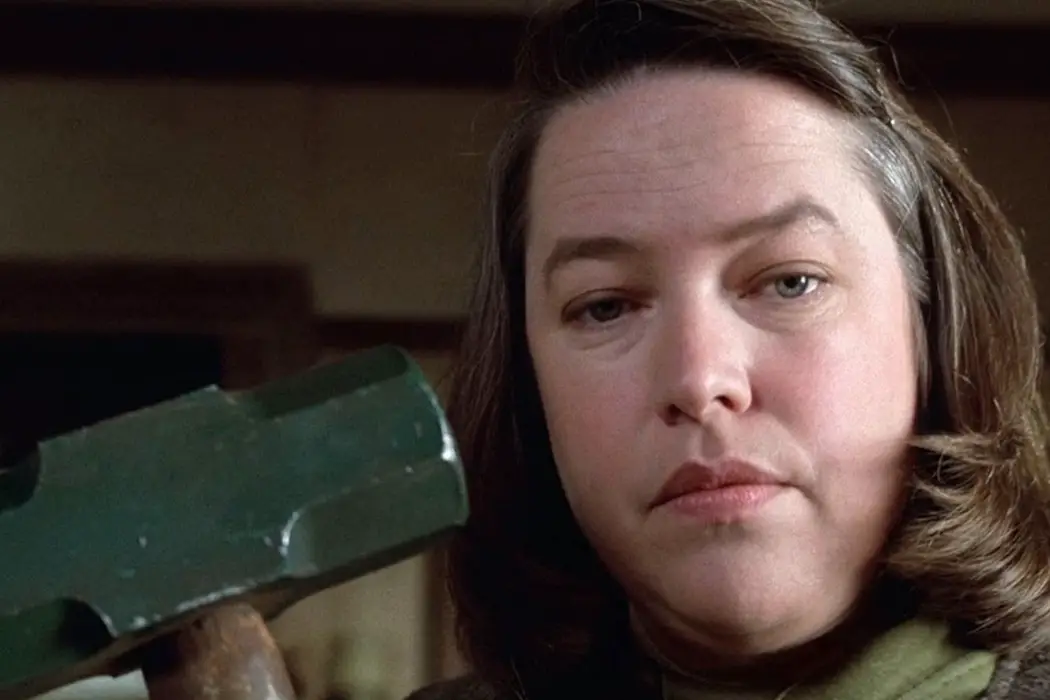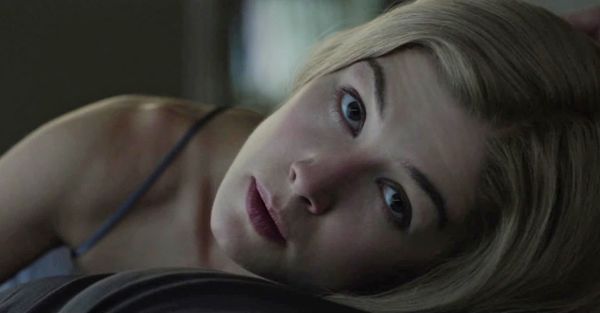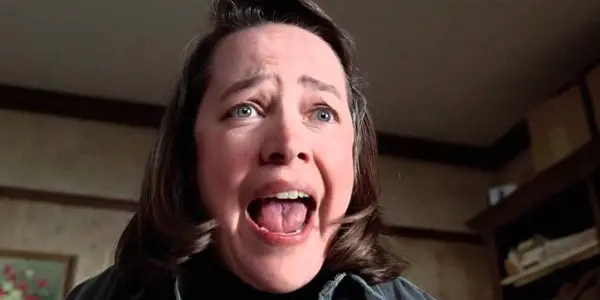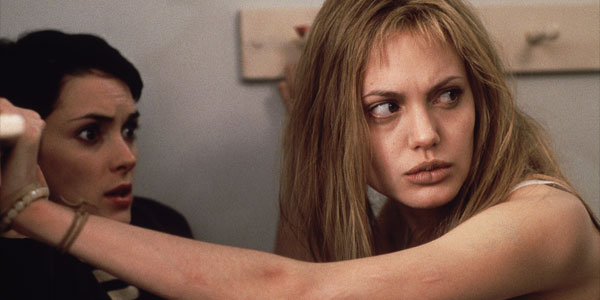Female Psychopaths In Cinema

Currently residing in Toronto with big dreams of working in…
In both dated and modern cinema, there are psychopathic male characters left and right and they continue to flood into our films in 2018. There are handfuls of staple psychos that will be etched in our brains forever, including the likes of Hannibal Lecter, Norman Bates, Jack Torrance, and the list goes on. It’s always the husband, boyfriend or brother, but this time is different.
Analyzing The Female Psychopath
There are a grand number of films that portray disturbed female characters such as the few I’m going to be analyzing here: Gone Girl, The Hand That Rocks The Cradle, Misery, and last but definitely not least, Girl, Interrupted. The disturbed female is rarely a true sociopath and there is always a motive. Psychopathic leading ladies commonly produce pernicious behavior, anger issues, self destruction, incidents of stalking and toxic manipulation.
No matter what the category or sub-type is, one thing is very easy to identify: psychopaths are the people we never wish to encounter. We’re terrified, captivated and thrilled by them all at the same time; there’s no surprise that these women are the subject of so many of our favorite films.

Amy Elliott Dunne (Rosamund Pike). Amazing Amy. You couldn’t ask for a better portrait of the perfect suburban housewife. She supposedly doesn’t mind doing typical guy stuff with her husband Nick (Ben Affleck) such as watching football, drinking beer and over-indulging in fast food. To win Nick over in the beginning, this is the woman she pretends to be. According to Amy, he “didn’t love me, me. Nick loved a girl who doesn’t exist”.
Amy gave her entire life to a man who cheated on her in return. He stole who she was, who she is and who she wants to be – this is what made her want to get revenge. So she frames him for her own murder.
Amy is cunning, sexy and vengeful due to infidelity. The perfect recipe for a femme fatale. She meticulously plans over the span of a year – yes, 365 whole days – to ruin her unfaithful, lying husband’s life. Amy is manipulative, carefully observing and making note of everything Nick says or does to eventually use these things against him when the time is right. He wronged her, so to her he has to pay. She creates a scarily original, highly intelligent plan involving detailed forensic research that is thoroughly revised and perfectly precise to the point where she should make zero mistakes.
Simplifying our lead female in Gone Girl down to the crazy, jealous wife or the psycho girl not only ignores the complexity of her character but it is also kind of degrading. Amy is a villain. She suffers from psychopathic symptoms that are quite similar to Christian Bale‘s Patrick Bateman from our beloved classic American Psycho (they are also both extremely selfish narcissists). Most viewers of the film I’m analyzing here are quick to judge and accept that Amy is just a crazy bitch – we need female characters to show us that they aren’t always portrayed as the damsel in distress and they’re not always killed off in the end.
Motive Behind The Madness
Our most cherished and well known deviant females usually aren’t just crazy for the sake of being crazy, they almost always have a reason to make their actions understandable. Next I’m going to talk about The Hand That Rocks The Cradle – a film in which there is an incredibly juicy deranged nanny trope. My favourite.
Basically the entire plotline of this movie is ridiculous and insane, but that’s why I love it (shout out to my mum for this recommendation). This film follows Claire Bartel (Annabella Sciorra), who gives birth to a baby boy, and her adorable suburban family. While pregnant, she was part of a scandalous lawsuit against a doctor who was found guilty of molesting her and a number of his other female patients who came forward. When he was accused, the doctor conveniently committed suicide.

Claire is understandably distraught from the incident and decides to hold interviews to hire a live-in nanny which will ease the stress and anxiety of giving birth preceding a traumatic experience – she hopes. She invites a woman over named Peyton (Rebecca De Mornay), who immediately gives off weird vibes. Of course, Claire doesn’t pick up on this, trusts her instantly and hires her regardless. As we do. I noticed a million red flags and wouldn’t even want to sit next to this woman on public transit let alone hire her to take care of my newborn baby.
So here’s the plot twist – Peyton is the widow of the now deceased doctor who molested Claire. Due to the emotional distress of her husband committing suicide and hearing the allegations of him being a sexual predator, she suffers a miscarriage. If you didn’t catch on by now, Peyton wants Claire’s baby and will do anything she can to get it – including feeding the baby her own breast milk.
The Bartels had previously hired a mentally disabled and gentlemanly fellow named Solomon (Ernie Hudson) from an employment assistance service, who regularly works around their yard. Solomon accidentally walks by as Peyton is breastfeeding the baby and to keep him quiet, she threatens him and accuses him of molesting Claire’s older daughter, resulting in him losing his job. She does countless evil and unthinkable things, including being overly flirtatious with Claire’s husband and setting up the death of Claire’s best friend Marlene (queen of everything, Julianne Moore) – who, conveniently, was the only person who knew the truth behind who the nanny really is. Of course.
Claire finally discovers the truth and finds out who Peyton really is after a sweat inducing climax that will cause you and everyone you watch this with to scream hysterically at your television.
While The Hand That Rocks The Cradle shifts from stealing innocence and tragedy ensuing in a doctor’s office to a crazy revenge tale, the film very quickly moves from a drama to the anticipation of finding out Peyton’s motive. It’s crystal clear to see that she is simply seeking revenge and trying to take back what she thinks an innocent, abused woman stole from her: a family of her own.
The Unconventional Femme Fatale
She takes stalker fan culture to a highly accelerated level and she is the 6th most iconic villainess in film history: Annie Wilkes of Stephen King‘s Misery (Kathy Bates). If you haven’t seen this one, you are 100% missing out. In both the novel and the film, it begins by Paul Sheldon (James Caan), author of the famous fictional Misery novels, getting into a nasty car accident near Annie’s home.
Being his #1 fan, she decides to throw him into the back of her pickup truck to take him into her home and bring him back to health (we later learn that Annie is a former nurse who was barred from practice after her patients kept dying mysteriously). It turns out that Paul has two broken legs and hips due to the accident, a concussion, possibly some significant brain damage as well as countless cuts and bruises. Our mentally unstable antagonist decides to keep her favourite author hostage until he writes an entirely new personal Misery novel just for her own personal enjoyment.
Annie gives Paul extremely poor and unprofessional treatment, which causes his injuries to worsen and results in him becoming addicted to painkillers; she breaks his ankles with a sledgehammer and cuts off one of his thumbs due to disobedience. Paul is never given proper physical therapy, therefore he is wheelchair bound due to not being able to walk. He eventually finds a way to escape and writes his first non-Misery novel. His agent asks him if he would ever consider writing a tell-all about being held captive and his experience, but he politely declines.

Annie isn’t your typical leading lady. She’s not exactly sexy and you could say she kind of needs a Queer Eye makeover. But man, is she next level crazy. It’s no surprise that Kathy Bates‘ performance won her countless awards, including the Academy Award for Best Actress in 1990. She comes off sweet and innocent, but in Annie’s first scene, she is training the viewer to recognize the sudden changes in her personality to help them understand the real meaning behind her words. It’s obvious that she is clinically insane, but Annie adds a certain nuance to the edge of insanity.
A Charming Sociopath
All of the women I have mentioned so far have all been murderous or harmful in some way. In the film Girl, Interrupted, the signs and symptoms are a little bit different. Lisa Rowe (Angelina Jolie), an ex-drug addict and sociopath, is the queen of Claymore psychiatric hospital. She is proud of her diagnosis; she’s reckless, obnoxious, loud, overly confident, unpredictable, and the list goes on. One thing that’s established is that she did not have a good relationship with her parents, which could be a factor in why she is the way she is.
Lisa is stubborn and never wants to take her meds, she skips therapy and tries to convince other patients to do the same. She frequently escapes the ward, and upon her return, she brags about her short-lived adventures to the other girls, convincing them to follow her lead and thriving off of their undivided attention. She manipulates both staff members and fellow patients and pretends to be their friend in order to get what she wants. Lisa enjoys hurting people and using them for power and dominance no matter what the cost.
Lisa continuously escapes the institution, but she always returns. It’s her home and she knows that she can’t survive in the real world on her own. She likes the small taste of freedom that her time outside the ward brings. She is a girl interrupting her own life by constantly delaying the inevitable: she needs to put in the effort to get better and improve her condition.

There is something so enthralling about watching a woman who has gone off the rails. Maybe you relate to her, maybe you are so intrigued by her that you can’t look away. The four women I have discussed in this analysis were those women for me. These are the movies that made me love movies. These women are so different yet they are all very similar. Gone Girl is polarizing, The Hand That Rocks The Cradle is unrealistic yet terrifying, Misery is shocking and Girl, Interrupted is terrifyingly real.
These cinematic masterpieces are all fantasies and fiction, of course, but after you watch them, they leave you wondering how much truth there is to these stories in real life. Should Gone Girl convince you that our skepticism and hesitation about marriage and love is justified? No. Gillian Flynn, the original author and screenwriter of the 2014 box office hit received a large amount of backlash for her work being misogynistic; but that’s just because men and women aren’t used to seeing a woman in the role a man usually takes. Feminism is about actual equality between men and women. Rosamund Pike‘s performance is too singular and important to be reduced to “anti-feminism” or “misogynistic”.
Writing about and watching these women as complex characters will invent a reality in our lives as spectators and critics – one where female villains are not a superficial stereotype, but a reality where they are allowed and encouraged to be intricately and completely human.
Do you think these films speak certain truths to how psychopaths act in the real world? Why or why not?
Does content like this matter to you?
Become a Member and support film journalism. Unlock access to all of Film Inquiry`s great articles. Join a community of like-minded readers who are passionate about cinema - get access to our private members Network, give back to independent filmmakers, and more.
Currently residing in Toronto with big dreams of working in the entertainment industry. Lover of all things cinema, Ethan Hawke and posting everything I eat to Instagram.












